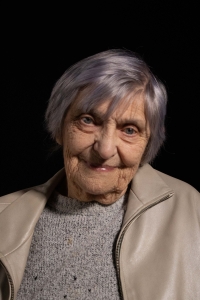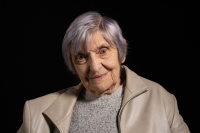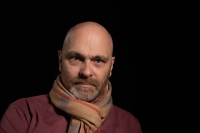I am not afraid of communists and I have never been afraid

Stáhnout obrázek
Alena Čápová was born on 17 September 1929 into the family of Jan Musil, a First Republic film producer. Her father worked for the Ministry of War in Great Britain during the First World War. She lived through the World War II in Prague‘s Vinohrady, survived the bombing of Prague, and was interrogated by the Gestapo. As a grammar school student and a member of the youth of the National Social Democratic Party, she participated in a student march to Prague Castle in February 1948 to ask President Edvard Beneš not to sign his resignation. After completing her studies at the Faculty of Education at Charles University (physical education) and geography at the Faculty of Science at Charles University, she worked as an assistant at the Department of Physical Education at the Prague University of Economics and Business until her retirement. She became friends with student leader and political prisoner Jiří Ješ, and in 1964 she married Czechoslovak figure skater Vladislav Čáp (sentenced to five years in prison for espionage in 1960).


